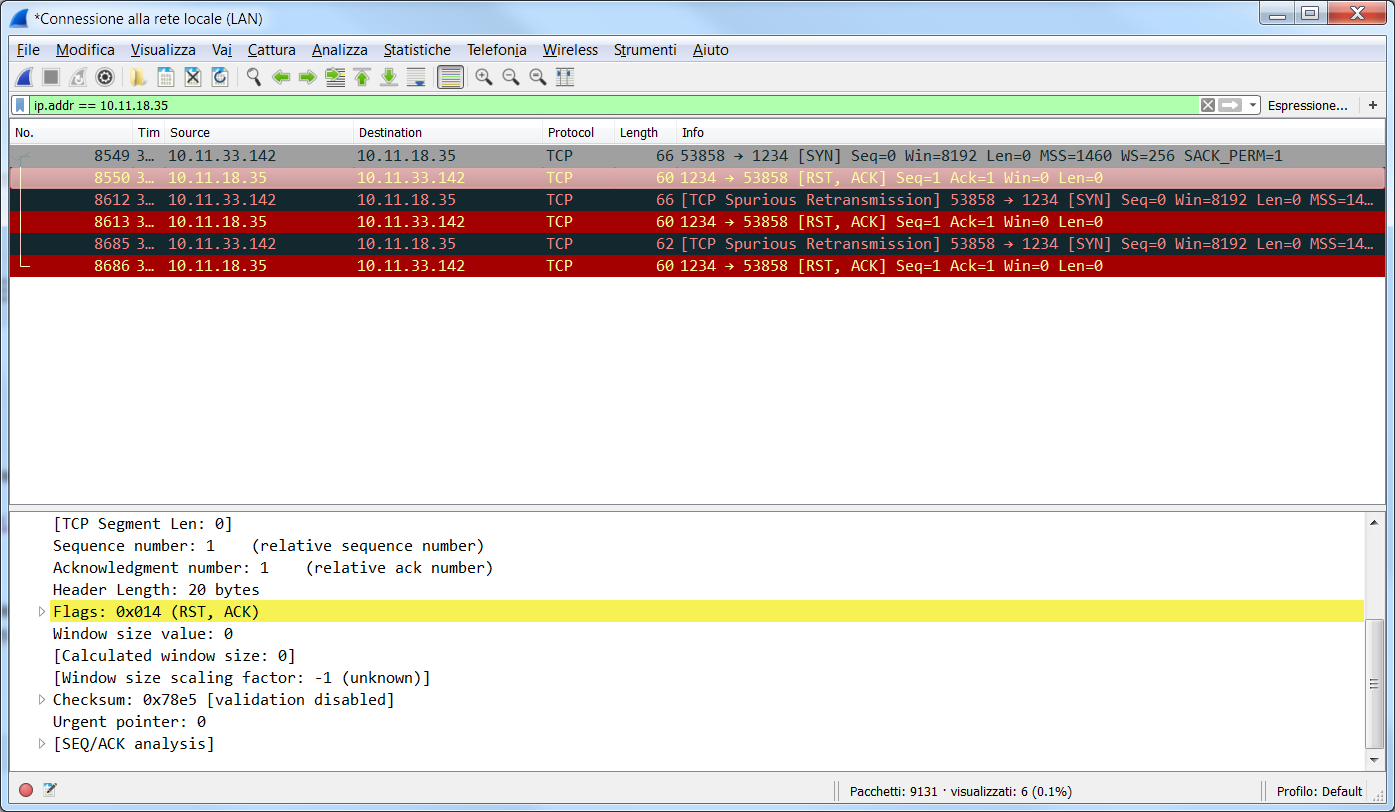Hi, all
When I use the UIA in my project, combine the project(http://processors.wiki.ti.com/index.php/TMS320C6678L_Build_Configuration) with my own. I want to transport data via NDK, it doesn’t work. Every time I start to debug the project, A "System Analyzer Welcome" view can open automatically. I can connect the board with telnet, after running the System Analyzer, nothing comes out. I check the tcp connet with wireshark.
PC connect the 6678 in port 1234 with SYN, but the 6678 reply RST. TCP connect fail.
I have try it for a long time, please help me.
my develop environment:
CCS 5.3
DSP 6678
XDS100 V2
BIOS 6.34.2.18
NDK 2.21.1.38
UIA 1.2.1.08_eng



